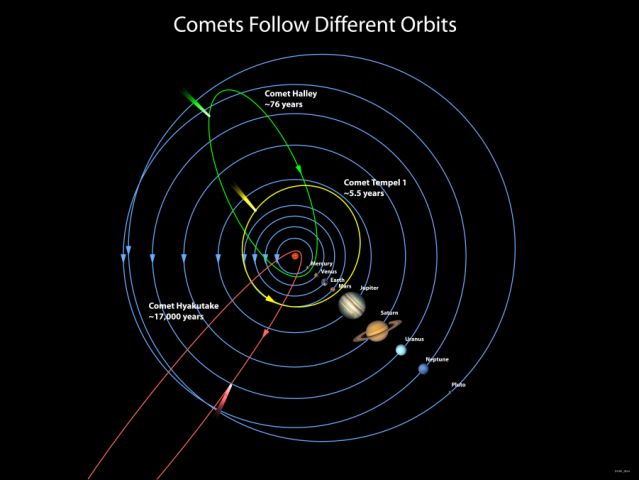Planet-Wide Seasons? (Random Planetary Orbit Question)
Posted: Wed Aug 16, 2017 4:11 am
I had something I was wondering about that I thought I'd pitch to y'all in case someone here had any insights.
The seasons on Earth are due to an axial tilt in the planet's spin. Our blue ball is a little over 23 degrees off with respect to the orbital plane, which means one hemisphere is getting more sunlight than the other. Hence seasons, the severity of which increase the farther you get from the equator.
Now, imagine you had a planet with no axial tilt. No tilt, no seasons... right? Well, yeah in an orbit with little-to-no eccentricity. But, and this is me finally getting around to my question, could you have a planet with no axial tilt but a highly elliptical orbit that experienced seasonal temperature variation due to its variable distance from its star?
If so, what you'd have is planet-wide seasons, with literally world-wide winter and world-wide summer, which is kind of neat and would give rise to some really crazy weather and evolutionary results.
I mean, the whole thing is fantastical since a world like that should be well outside the Goldilocks Zone for at least some of its orbit and be subject to nasty impacts, to say nothing of what merry hell the rest of the system's orbital bodies would do to something with such a huge, elliptical orbit, but I'm willing to handwave all that stuff aside for this asinine curiosity.
So yeah, thoughts?
The seasons on Earth are due to an axial tilt in the planet's spin. Our blue ball is a little over 23 degrees off with respect to the orbital plane, which means one hemisphere is getting more sunlight than the other. Hence seasons, the severity of which increase the farther you get from the equator.
Now, imagine you had a planet with no axial tilt. No tilt, no seasons... right? Well, yeah in an orbit with little-to-no eccentricity. But, and this is me finally getting around to my question, could you have a planet with no axial tilt but a highly elliptical orbit that experienced seasonal temperature variation due to its variable distance from its star?
If so, what you'd have is planet-wide seasons, with literally world-wide winter and world-wide summer, which is kind of neat and would give rise to some really crazy weather and evolutionary results.
I mean, the whole thing is fantastical since a world like that should be well outside the Goldilocks Zone for at least some of its orbit and be subject to nasty impacts, to say nothing of what merry hell the rest of the system's orbital bodies would do to something with such a huge, elliptical orbit, but I'm willing to handwave all that stuff aside for this asinine curiosity.
So yeah, thoughts?
